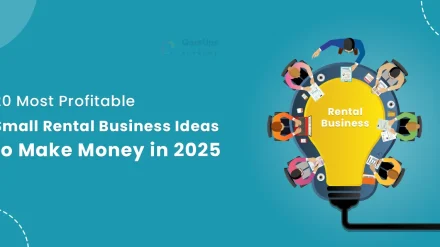In essence, staying updated with rental marketplace trends is not just a means of survival but a way to thrive in the dynamic world of the online rental marketplace.
This enables rental businesses to meet customer needs effectively, stay competitive, and continue to provide value in a growing market.
So, what is an online rental marketplace? And Why do I need to keep up with the rental marketplace trends?
Online rental marketplaces is a digital platform that connects individuals or businesses seeking to rent out their assets, properties, or services with potential renters.
This innovative concept has revolutionized the way people access goods and services temporarily, offering a convenient and cost-effective alternative to traditional ownership.
From vacation homes and vehicles to tools, equipment, and even services like freelancing or event planning, the online rental marketplace caters to a diverse range of needs.
It’s a hub of possibilities where supply meets demand in a virtual space, fostering economic efficiency, sustainability, and convenience.
As for the second question Why it is essential to keep up with the rental marketplace trends? Here is your answer.
Over the decades rental industry has seen enormous growth. In this ever-evolving rental industry, you keep pace with the recent trends.
At this rate, staying updated with the trends is not only the choice. But it is a strategic approach to always stay ahead of the competition.
Why Rental Marketplace Trends Are Crucial?
Why keeping your finger on the pulse of rental marketplace trends is crucial.
- Stay Ahead of the Game: Trends shape what people want. Knowing them puts you ahead, attracting more users to your platform.
- Happy Users, Happy Platform: Trends help you give users what they need. This leads to happier users, better engagement, and a robust platform.
- Discover New Opportunities: Trends reveal new needs. You can expand your offerings and reach untapped markets for growth.
- Avoid Surprises: Trends show potential problems. Staying current helps you avoid risks, ensuring your platform’s safety.
- Build Trust and Recognition: Evolving with trends builds trust. Users trust platforms that keep up, and your brand becomes more recognizable.
Thus, it is critical to stay on trend. Now, let’s see what are the rental marketplace trends in 2024 and future trends.

Top 5 Rental Marketplace Trends 2024
Amidst the ever-changing terrain of the rental industry, 2024 emerges as a pivotal year marked by profound shifts and revolutionary advancements.
With evolving user expectations at the forefront, the industry is embracing a multitude of trends. These are set to revolutionize how we rent and interact with services.
From the assimilation of advanced technologies to strategic ventures into international markets. The five key trends of 2024 are positioned to redefine the entire rental marketplace landscape, reshaping the way we perceive and engage in this dynamic industry.
Integration Of AI and Machine Language
AI automates tasks, personalizes experiences, aids decision-making, and drives innovation across industries, saving time and costs.
On the other hand, VR offers immersive experiences for entertainment, training, architecture, therapy, and collaboration, making it a game-changer in various fields.
Their abilities to enhance efficiency, deliver immersive engagement, and drive innovation have propelled AI and VR to the forefront of technological advancements, captivating industries and individuals alike.
This why your rental marketplace software should use the powerful tech AI and VR.
This rental marketplace trend supports your rental business in 2 aspects.
Personalized Recommendations for Renters
AI and machine learning algorithms are revolutionizing the rental experience by analyzing user preferences, behavior, and past interactions.
These technologies enable platforms to offer tailored recommendations to renters, suggesting properties or assets that align with their unique tastes and requirements.
As a result, renters can discover options that resonate with them quickly, streamlining their decision-making process and enhancing overall satisfaction.
Improved Fraud Detection and Prevention
AI-driven fraud detection systems are becoming essential for ensuring the security of online rental transactions.
Machine learning models can identify patterns of fraudulent activities, such as fake listings or suspicious user behavior.
By continuously analyzing data and learning from evolving tactics, AI helps platforms proactively detect and prevent fraud, safeguarding both renters and providers from potential scams.
Virtual and Augmented Reality (VR/AR) In Your Rental Marketplace Software
By melding the immersive capabilities of VR with the contextual augmentation of AR, the rental experience is being reimagined.
This fusion is enabling remote property tours and elevating user customization, propelling the sector into a new era of unparalleled personalization and technological synergy.
Virtual Property Tours for Remote Viewing
Virtual reality allows renters to conveniently explore properties from their residences, overcoming geographical limitations.
Through immersive VR property tours, users can virtually walk through rental spaces, getting a realistic sense of layout, ambiance, and features.
This technology minimizes the need for physical visits, saving time and resources for both renters and providers.
It’s particularly valuable for long-distance or international renters who can confidently assess properties without being physically present.
Enhanced User Experience through AR Applications
Augmented reality enriches the rental experience by overlaying digital information in the real world.
Renters can use AR applications to visualize how their chosen furniture or décor would fit within a space, helping them make informed decisions about customization.
Additionally, AR can provide real-time information about a property’s surroundings, nearby amenities, and local attractions, offering renters a comprehensive understanding of their potential rental environment.
The integration of AI, machine learning, virtual reality, and augmented reality is not just enhancing the online rental marketplace – it’s redefining it.
These technological advancements are fostering a more personalized, secure, and immersive rental journey, ultimately elevating user satisfaction and contributing to the continued growth of the industry.
Evolving User Experience In Rental Marketplace Software
Evolving user experience in rental marketplace software is a continuous process that involves adapting to changing user preferences, technological advancements, and market trends.
Streamlined User Interfaces (UI)
One of the key elements of a successful rental marketplace is an intuitive navigation system.
Users should be able to easily find what they’re looking for without having to go through a complex series of steps.
This involves categorizing listings logically, using clear labels, and providing efficient search and filtering options. A well-organized menu structure and well-designed buttons contribute to a smoother user experience.
Also, with the growing use of smartphones and tablets, rental marketplace software needs to have a responsive design.
This ensures that users can access and navigate the platform seamlessly regardless of the device they’re using.
Mobile-responsive design not only improves usability but also helps in retaining users who prefer browsing on their mobile devices.
Enhanced Communication Channels
Incorporating real-time chat features within the rental marketplace software facilitates instant communication between renters and landlords.
Also, this is particularly useful for addressing queries, negotiating terms, or seeking additional information about listings.
Real-time chat helps to build trust and transparency by providing immediate responses to user inquiries. Chatbots are AI-powered tools that can handle basic customer inquiries and tasks.
They can provide instant responses to frequently asked questions, assist in the initial stages of user interaction, and direct users to the appropriate resources or support channels.
Chatbots not only enhance user experience but also reduce the workload on customer support teams.
These trends contribute to an improved user experience in rental marketplace software by focusing on convenience, accessibility, and effective communication.
However, the trends of the rental marketplace don’t stop here.
Flexibility and Diversification of Rental Marketplace
The evolution of rental marketplace software revolves around providing flexibility, catering to different rental durations, and diversifying the types of rentals available.
By accommodating short-term and long-term renters while also venturing into unique rental categories and niche markets, rental platforms can remain relevant and appealing to a broader audience.
Short-term vs. Long-term Rentals
The demand for short-term rentals, such as vacation homes, holiday apartments, and furnished rentals, has been on the rise.
Rental marketplace software should support the seamless listing and booking of these short-term accommodations.
The user interface should prioritize displaying availability, pricing, and booking options clearly to cater to travelers and short-term visitors.
In a competitive market, attracting long-term renters requires specific strategies. Rental marketplace platforms can provide incentives for landlords to offer longer-term leases, such as discounted rates or flexible lease terms.
To enhance the user experience for long-term renters, the software should focus on providing detailed property information, transparent rental agreements, and convenient communication channels between landlords and tenants.
Unique Rental Categories
Expanding beyond traditional property rentals, some platforms are embracing unique rental categories. This includes offering event spaces, workshops, studios, and other experiential spaces as rentals.
Also, user experience should emphasize the uniqueness of these offerings, allowing hosts to showcase their spaces effectively and enabling users to easily book and manage these non-traditional rentals.
Niche Markets Like Co-working Spaces and Storage Solutions: As the sharing economy evolves, niche markets like co-working spaces and storage solutions have gained traction.
Rental marketplace software can provide dedicated sections for these niches, allowing users to find and book co-working desks, meeting rooms, and storage units.
The platform should highlight relevant features such as location, amenities, and availability, enhancing the user experience for those seeking specialized rentals.
Global Market Expansion and Localization
Expanding a rental marketplace successfully involves more than just offering a platform; it’s about creating an experience that resonates with people from different backgrounds.
Localization Strategies
By embracing localization strategies, the platform demonstrates its commitment to understanding and meeting the unique needs of each market.
Translations and Cultural Adaptations
Expanding a rental marketplace globally requires understanding the nuances of each market’s language and culture.
Translating the platform’s content and user interfaces is crucial for making it accessible and relatable to users from different regions.
Additionally, cultural adaptations, such as using images and symbols that resonate with local audiences, help build trust and familiarity, facilitating a seamless user experience.
Tailoring Search Filters to Regional Preferences
Preferences for rental properties can vary widely across regions.
Implementing search filters that align with local preferences, such as amenities, property types, or neighborhood characteristics, enhances the relevance of search results.
For instance, an urban-focused search filter might prioritize proximity to public transport, while a rural-focused filter could highlight outdoor amenities.
Addressing Legal and Regulatory Variations
Navigating legal and regulatory variations ensures the platform’s sustainability and credibility, fostering an ecosystem where users from around the world can engage with confidence.
Compliance with Different Rental Laws and Regulations
Navigating diverse legal frameworks is paramount in global expansion. Rental laws, lease agreements, and tenant rights differ significantly across countries.
Adapting the platform to adhere to local regulations ensures that both renters and property owners are protected.
By providing resources and information on relevant laws, the platform can foster a trustworthy environment.
Ensuring Fairness and Transparency in Diverse Markets
What constitutes fairness and transparency can vary from one market to another.
Addressing this requires careful consideration of local norms and expectations.
Providing clear and standardized information about rental terms, pricing, and property conditions ensures that all parties have access to accurate information, promoting fairness and building trust.

Final Sayings,
In 2024, the online rental marketplace stands at a pivotal point, shaped by technology and user preferences.
Integrating AI, machine learning, VR, and AR has led to more personalized and secure experiences.
Streamlined interfaces and communication tools enhance interactions between seekers and providers.
Rentals now span short to long-term, including experiential and niche categories, adapting to dynamic demands.
Global expansion requires cultural understanding and legal adherence.
The evolving landscape promises continuous change, where adaptability shapes success.
So, embrace change, navigate the future, and paint stories of success and innovation in the realm of online rentals.






